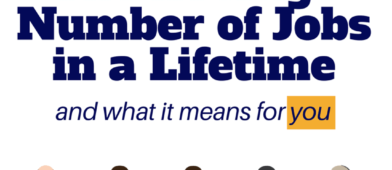Every few months, someone will publish an article about how folks making $xx,xxx per year don’t feel rich.
The latest I’ve seen is a MarketWatch piece where that number was $90,000. It referred to a YouGov survey in which 87% of 1,163 respondents said that if you made $90,000 a year, you weren’t rich or poor. The survey found that most people believed that at $30,000 a year is when you’ve escaped the “poor” category.
The median income of Americans of all ages is $56,516. The median income of those ages 15 – 24 is just $36,108, according to the Social Security Administration. A little less than a third of all Americans make less than $34,999 a year (32.1%).
But when you think “who could make $90,000 and not feel rich?” – there are a lot of reasons.
Very few of them have to do with the dollar amount.
This article aims to discuss why someone who makes $90,000 might not feel rich. It’s not meant to justify the feeling, but explain the mindset of someone who might make six figures but still feel like they’re behind the 8-ball.
Table of Contents
Income is Relative to Cost of Living
Intuitively, we recognize that cost of living various across the country.
Living on $90,000 in California is a challenge. Living on $90,000 in West Virginia is far more manageable.
If you look at home values in the United States (Zillow), the median home price in California is $547,400. The median home price in all of West Virginia is $97,800. These are massive states and different areas within those states will vary in price, but I wanted to highlight the importance of cost of living.
The median list price for a square foot in California is $311. It’s only $93 in West Virginia.
That alone should tell you how (not) far $90,000 will go in the state of California, as compared to West Virginia.
If you ask someone from California if $90,000 is rich, they will say no. If you ask someone from West Virginia, they are more likely to say yes.
Income is Also Relative to Peers
This ties into the cost of living point, since many of your peers will live in the same area as you, but feeling rich has a lot to do with your peers. It’s hard for you to be happy if everyone else is doing better, even if you’re doing great.
If you earn less than all of your peers, it’s hard to feel rich. If your peers have nicer cars and nicer houses, it doesn’t matter how nice your car or house is. Even if it’s nicer than the house you grew up in. Even if it’s nicer than the house you lived in 10 years ago. You won’t feel rich because your peers appear reacher.
Social media hasn’t made it any better. When people update their “status” and share their vacations, their car, their whatever… you will experience the same thing.
What makes social media even worse is that you are bombarded by your peers’ bests. In a single day, you could see updates about someone’s vacation, their new car, their new job, their achievements, and other highlights.
(if this is a challenge for you, this post on TinyBuddha may help alleviate that problem)
The Hedonic Treadmill Runs Forever
The hedonic treadmill, or hedonic adaptation, is this idea that we always return to a relatively stable level of happiness regardless of any major positive or negative events. While this idea has been hotly contested, anecdotally it seems to feel accurate, right?
As people earn more money, they spend slightly more. It’s known as spending creep.
You get a raise at work and spend slightly more. Or maybe you treat yourself to something. And maybe that something has on-going costs, like a new car.
When you first do this, you experience a bit of extra happiness. But over time you return to your set point for happiness. Your couch is nicer, your car is nicer, your house is nicer… but it’s still a couch, car, and house. And some of those things require a little more upkeep.
What happens is your spending increases, your happiness returns to your set point, and now that increase in income is offset by the increase in spending.
The end result is that you are richer, with better stuff, but you don’t feel richer because your level of happiness has reverted to its set point.
The stuff I own now, in my late thirties, is far nicer than the stuff I owned in college. In terms of happiness though, I believe I’m around the same level of happiness as I was then.
Satiation Points Are Real
Money is like oxygen. When you don’t have enough, all you can think about is how to get more. When you have enough, more doesn’t have the same impact.
When you hit the satiation point, which varies from person to person, more doesn’t necessarily mean better. Studies have shown that satiation occurs at around $95,000 for life evaluation and $60,000-$75,000 for emotional well-being.
Sometimes, making more comes at a cost. To earn more, you might have to spend more time at work. You may need to take on responsibilities and stress. These all have negative effects on your lifestyle, which may not be worth it in the long run.
Consider the high powered executive who has to put 60-80 hour weeks for their six-figure job. If you are single, with no dependents, then 60-80 hours is a personal cost. It’s more time in the office.
If that same high powered executive has a family, those extra hours are hours that can’t be spent with a spouse or with his or her kids. The executive isn’t just trading hours for dollars. He or she is trading life events and quality time. When you have to do it to pay the bills, it’s an unfortunate added cost. But when you have hit satiation, do you really want to trade dinner as a family and books at bedtime for a job?
The feeling of being rich is often as simple as believing you can make those decisions without financial repercussions.
Disposable Income Defines Richness
Lastly, I’d like to make the argument that how much disposable income you have defines how rich you feel.
It’s not the top line income number, which gets reduced by taxes and your fixed expenses. The average household budget is fairly mundane but the average annual budget is $60,060. If you take the average taxpayer making $90,000, your net pay is likely somewhere around $65,000. After you subtract the average budget, that’s just $5,000 a year – or ~$416 a month.
An extra $416 a month in spending is a lot.
But few people would feel like an extra $416 would make them “rich.”
And “rich” is about feeling.




“Rich” is about feeling. I don’t feel rich because we don’t spend a lot of money. But I feel good when I see a surplus at the end of the month. That’s a feeling of security and comfort. That’s good enough for us and it’ll have to do.
Yes! And what’s funny about that is that I DO feel rich for a completely different reason – I feel rich because I have the flexibility of my time (and I know you do too). I can go into my kids’ school during the day to volunteer, I can go to the gym in the middle of the day when it’s not busy, I can go to the post office or grocery store when no one’s around (and avoid the massive lines!), etc. Doesn’t have a thing to do with the number in my bank account. Best things in life… Read more »
It also has to do with situation. If you compare the needs of a young single person to that of an entire household with children it will be very different. An 1800 sqft house doesn’t feel much bigger than a 600 sqft apartment when you cram another 4 people in there with you. You may also have added expenses of daycare and/or college. My mom was probably making something close to $90k (probably more if you adjusted for inflation) before she retired, but was still scraping by, and it had very little to do with spending habits. It had to… Read more »
Great observation and what’s crucial to remember is that we rarely know the full story on anyone. Single vs. family with children is an obviously visible difference. What if someone has high medical bills for a condition that isn’t visible? $90k may be a princely sum in a low cost of living area… unless you have high medical bills for a chronic condition through no fault of your own.
Situation (and luck, good or bad) always matters – excellent point.
“Rich” has always been more of a relative measure than an absolute one, and now the competition isn’t just local or regional. Since folks will always look across and up when deciding how they’re doing, there’s always going to be a lot of people with more. If we could all decide by ourselves what it means to be rich and just stick with that absolute measure, we’d probably all be happier. And richer. And no longer human 🙂
I enjoyed reading this very much. I always had a specific definition in my head for “rich,” and I could not believe it when I met it. (It’s pretty simple: I want to be able to see something reasonable that I want or need and be able to get it without worry. I’m not talking about a Ferrari, more like “Hey, I really could use some summer clothes,” and not having to put it off waiting for another paycheck to come in.) That comes in part due to what I earn, but it’s also how much debt I’ve been able… Read more »
I really like this definition of rich – being able to buy something you want or need when you want or need it, not being forced to wait to the next pay period or some other time.
Thanks for the comment Joan!
Aloha Jim, I think the word “Rich” is something we imagine and giggle about. Money is important but we can’t put a value on good health, laughing and hugging our loved ones over a cup of coffee ($2.50), and celebrate every birthday knowing we’re making a positive difference (priceless). Some of my friends saved all their money so they could travel when they retired. They went to heaven before retirement. I know friends that could have visited their family in different states/countries, but waited until they had more money to visit later. Their family is gone now. The bottom line… Read more »
100% true – You can’t buy more time.
I love this comment!
On point!
When I think of “rich” … two images come to mind. We know some people who live a fabulously wealthy lifestyle fueled by mega investments and lots of debt. Their lifestyle does not appear to make them any happier or make better decisions than the next person. Contrast that image with my mom of 84 who lives independently debt free in her own home on a railroad pension (not eligible for SS) and combined with an annuity to total $24,000 per year. She does not want any more money in fact she gives 20% away in charity. She is a… Read more »
I love how young people say “those people saved their money for travel in retirement, but died before they could travel”. Does it matter? If they are dead and didn’t get to travel, will it matter to the dead person. What really matters is-were they happy before they died? Maybe what made them happy was working, planning and saving.
There is something to be said for having a goal and working towards it. It offers a sense of purpose.
To me, feeling rich is the freedom to make choices with your money and time. When you are strapped for cash & an emergencies happen, life doesn’t wait. Often, tough decisions get made and you pay a heavy price. To me, rich is about reaching a point where you are financially balanced and an unexpected expense doesn’t keep you up all night. For those that have expensive tastes, it will require higher salaries. For those who place less value in material things, it will be less. I think what may be more important than money are the relationships that you… Read more »